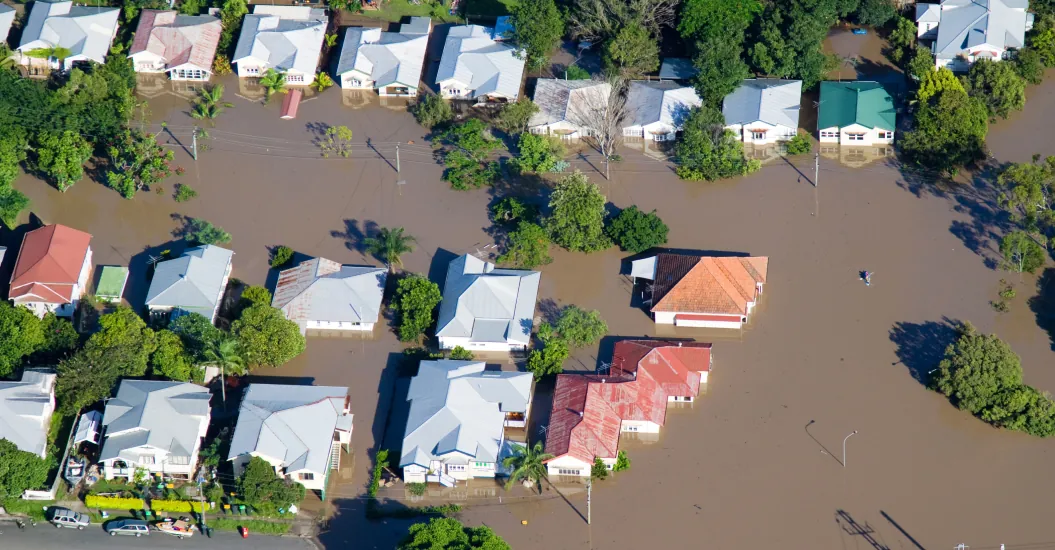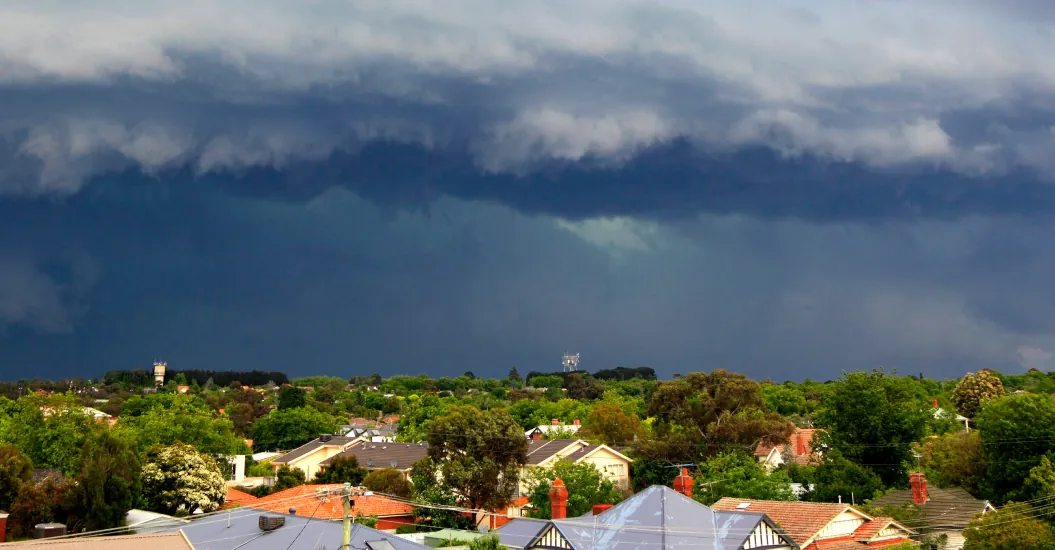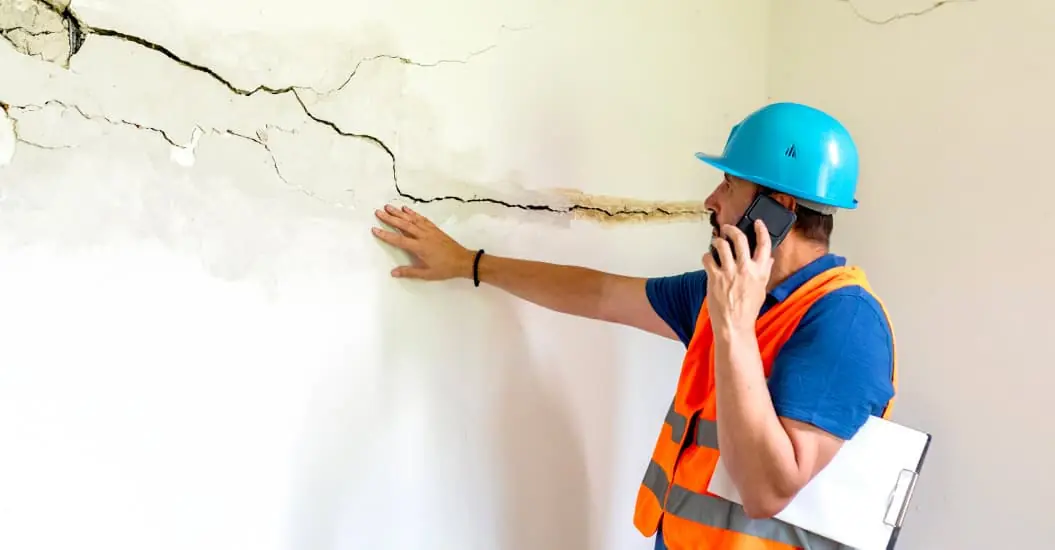Landslides, also known as landslips, are a common natural hazard in Aotearoa New Zealand because of our hilly terrain, frequent earthquakes, and rainy weather. A landslide happens when ground material like rock and soil falls, slides, or flows down a slope.¹
Being prepared can make a big difference since landslides often happen without warning. Here's a practical guide to help you and your family stay safe before, during, and after a landslide and minimise any damage to your home.
Before a landslide
Know your area
Understanding your surroundings is key. Check if your home is in a landslide-prone area. In New Zealand, steep slopes, riverbanks, and areas around cliffs are typically at higher risk. Look for warning signs like:
- New cracks in the ground, walls, or foundation.
- Uneven floors or misaligned doors and windows.
- Roots growing into or pushing against a retaining wall.
- Tilting trees or fences.
- Sudden changes in stream water levels, especially during and after heavy rain.²
Visit the Natural Hazards Portal, or you can ask your local Civil Defence Emergency Management Group for more information.
Prep your home
Keep your home in good shape:
- Investigate and repair cracks in walls, foundations, and retaining walls. Natural Hazards Commission (NHC) has a great list of what to look for when inspecting your home.
- Clear drains and gutters to prevent blockages that can worsen flooding and trigger landslides.² Check out our gutter cleaning tips.
- Take photos of slopes on your property to monitor changes, especially after heavy rain or earthquakes.³ Having before and after photos will be helpful if you need to make a claim following a landslide.
If you're unsure and have concerns about your home and property, it's a good idea to get a geotechnician to check things out. These experts can spot potential landslide risks and other issues. They'll know exactly what to look for and how to safely inspect your property.
Regular inspections of your house, its foundation, and the land around your property are important, particularly after long dry spells, earthquakes, or heavy rainfall.
Make an emergency plan
Create a household emergency plan and practice it regularly. Having one in place can help reduce any stress about what to do in an emergency. Use the Get Ready emergency plan template to get started.
Pack a grab bag
Prepare an emergency kit with essentials like:
- Water, non-perishable food, and medications.
- Important documents.
- A torch, batteries, and a first aid kit.
- A portable radio for emergency updates.
Learn more about grab bag essentials in our blog.
Keep your important docs handy
Using cloud storage is a great way to keep your important documents and photos safe. You can back up things like IDs, ownership records, receipts and photos, making it easy to share them for your insurance claims.
Stay updated
It's important to stay connected to your community. You can monitor the weather updates and alerts from:
- Civil Defence
- Your local council
- News reports.
Remember to keep a radio and spare batteries in your grab bag in case the power goes out. This way you can still hear the latest news and advice.
Review your insurance
Having the right insurance cover for your home and belongings is important to help get you back on your feet if your home is damaged by a natural hazard.
Our house insurance calculator can help you estimate the cost to rebuild your home, while our contents insurance calculator will help work out the value of your belongings and estimate what cover amount you need.
Explore our guide to house insurance.
During a landslide
Stay alert
Listen for unusual sounds like cracking trees or rocks colliding, which may indicate moving debris. Stay sharp, especially during heavy rain, and report any hazards to emergency services and your local council.
Evacuate immediately
If authorities say to evacuate, don't wait around. Take your grab bag, your family and pets, and follow Civil Defence instructions.
Move to higher ground
If you think a landslide is coming:
- Take your grab bag and move quickly to higher ground, away from the landslide's path.
- If you're caught in its path, move sideways to avoid being swept away. If you can't escape, curl into a tight ball and protect your head.²
- Stay away from rivers, valleys, and other low-lying areas, especially during heavy rain.²
Help others
If it's safe, check on your neighbours, and assist those who may need help evacuating.
After a landslide
Stay away from affected areas
More landslides may happen, especially with more rain. Wait for authorities to declare the area safe before you return and follow their instructions.
Check for injuries
If it's safe, help anyone injured or trapped. Give first aid and call 111 for serious injuries.
Inspect your property
Once it's safe to return:
- Check for damage to water, gas, and electricity lines. Landslides can disrupt these services and create more risks.
- Report any broken utility lines to the authorities right away.²
- Don't try to fix anything that puts you in danger or causes more damage to your property.
- If you rent your home, contact your landlord. If there's damage to your contents, reach out to your insurance provider.
Document the damage
Take photos of the damage, keep repair receipts, and gather purchase receipts for damaged items to support your insurance claim.
Make a claim online
If you're a Tower customer, save time by making your house, landlord, vehicle, or contents claim online in My Tower. You can upload supporting documents and photos to speed up the process. Don't have a My Tower account? Register here.
After submitting your claim, a claims manager will be assigned to assist you. Their contact details can be found in My Tower if you need to reach out.
Learn more about the claims process following a natural hazard event.
NHCover
The NHC provides some limited cover for damage caused by natural hazards. If you have a Tower house and/or landlords plus policy, you'll likely have NHCover. Learn more about NHCover.
Tower acts as your agent for NHC and will manage your NHC claim on their behalf.
Temporary accommodation
If your house is uninhabitable, stay out until Civil Defence gives the all-clear. This means you may need to stay in temporary accommodation for a while.
If you have house insurance with Tower, we'll cover reasonable temporary accommodation costs if your home becomes uninhabitable due to a covered loss, or if you're prevented from entering by government or local officials. This benefit even includes kennel or cattery fees for your family pets.* Don't forget to keep those accommodation receipts for your claim.
Stay in the loop
Keep an eye on updates from Civil Defence and your local council for recovery efforts and any ongoing risks. Landslides can cause secondary hazards, like blocked streams leading to flooding. Your battery-operated radio will be handy for getting the latest updates and emergency information.
We're here for you
You can make your house and/or landlord insurance claim in My Tower. Upload your supporting documents and photos at the same time to help us validate your claim twice as fast.
If you need more support, the quickest way to reach us is in My Tower.
Follow these steps to prepare for, respond to, and help recover from a landslide in New Zealand. Stay informed and stay safe!
* For all of these benefits, please read the policy wording and cover documents to understand the terms, conditions, excesses, limits and exclusions that may apply.
The links we provide to third-party websites are for your convenience and do not constitute any endorsement or authorisation by us. The information provided on this page is general in nature and is not intended to be professional or legal advice. Tower does not accept any liability for the accuracy or content of information on this website that belongs to third parties or on any third-party website.

Looking for house insurance?
Save $200 on new, eligible house insurance policies with promo code SWEETDEAL.*






